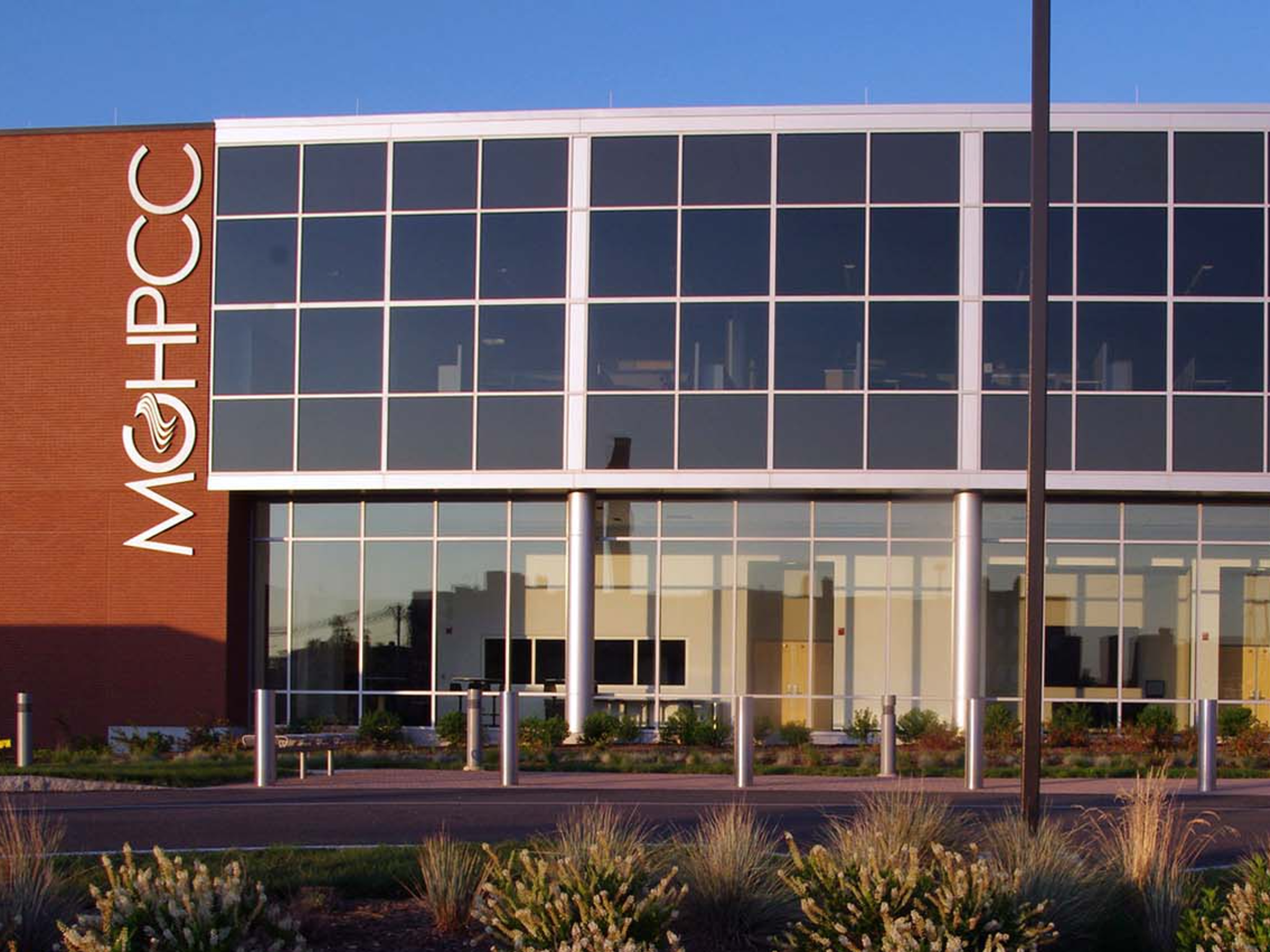
As first partner outside Mass., collaboration set to advance research computing in the region
KINGSTON, R.I. – Nov. 16, 2021 – The University of Rhode Island has become the first academic institution outside of the state of Massachusetts to join the Massachusetts Green High-Performance Computing Center. The center is a collaboration of the five major research universities in Massachusetts – Boston University, Harvard University, Massachusetts Institute of Technology, Northeastern University, and the University of Massachusetts – with a dedicated data center in Holyoke, Massachusetts. Built in 2012, it hosts the research computing infrastructure of its members.
URI formalized a partnership with the green computing center late last month that will advance research computing efforts in the region, including establishing new computational resources and enabling collaborations among URI and all the major Massachusetts universities. Earlier this year URI began collaborating with the center and its member institutions, launching a number of pilot projects allowing URI researchers to make use of key computational facilities, including UMass Amherst’s UNITY cluster, MIT Lincoln Lab’s SuperCloud, Open Storage Network, North-East Storage Exchange, and high-speed connectivity via OSHEAN.
This month, the two parties finalized a formal agreement allowing URI to host its own high performance computing hardware at the Massachusetts center and to operate it jointly with UMass Amherst’s research computing systems. URI will also be installing $1.5 million worth of new high performance computing hardware, which will serve as a computational platform enabling new regional research collaborations.
“Scholarly work is increasingly dependent on technology,” said URI President Marc Parlange. “From the digital humanities through computationally intensive ocean modeling, our work often depends on data analytics, simulation, visualization, and many other digital domains. This investment supports our common goal of continuing to build on our regional, national, and international research profile. It will build on our strong track record of computing investments and position us to help address pressing global issues across the disciplines and colleges.”
In speaking on the partnership, John Goodhue, executive director of the center, stated, “The MGHPCC was founded on the idea that collaborative investments in cyberinfrastructure can support computationally intensive research and education more effectively than any single institution working alone. We are delighted to be working with the University of Rhode Island and UMass Amherst to advance that idea.”
Early interactions between URI and member institutions have already resulted in fruitful outcomes for the regional National Science Foundation-funded CyberTeams CAREERS program (in collaboration with the North East CyberTeams) as well as the submission of several joint NSF proposals with UMass Amherst and UMass Dartmouth.
“In this era of cross-university research collaboration so vitally necessary for advancing progress toward our grand challenge problems, I am very excited that URI is able to partner with our colleagues in Massachusetts,” said URI Chief Information Officer Karlis Kaugars. “This new partnership will enable our faculty to more efficiently engage in these types of collaborations with their peers and represents a huge step forward for regional collaborative efforts.”
The center leads other activities that enhance research computing in the region, including submitting collaborative grant proposals, running regional workshops, maintaining a presence at international supercomputing conferences, and more. It was the first university research data center to achieve LEED Platinum Certification, the highest level awarded by the Green Building Council’s Leadership in Energy and Environmental Design Program.
For more information on URI’s involvement in the Massachusetts Green High-Performance Computing Center and its impact on computational research efforts and collaborations in the region, please contact URI Director of Research Computing, Professor Gaurav Khanna.